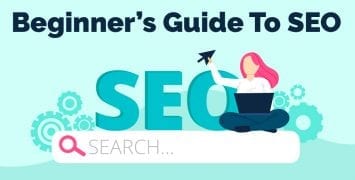WordPress is used by bloggers and content managers everywhere. It’s particularly popular amongst the web design blogging scene, mainly for it’s ease of use and it’s massive library of plugins that extend the functionality far beyond what the bare bones system offers.
Let’s take a look at 10 must-have plugins for your Web Design related blog…
1. All In One SEO Pack
It’s important that your carefully written content reaches your intended audience and there’s no larger audience than that of the search engines. Using an SEO plugin will ensure that before you publish your posts you have the chance to correctly add meta data such as titles, descriptions and keywords. Not entering this information really does limit your chances of being found in Google for your articles relevant keywords.
I’ve found success using this particular plugin as it’s simple and lightweight, no technical knowledge required!
2. Google XML sitemaps
As well as having correctly added SEO data, its important that you have thorough sitemaps in place when Google searches your web design blog as this helps Google index your pages correctly and gives you a little more control over what Google sees when it crawls your site.
Creating an XML sitemap for a large site, especially one such as a web design blog which can add pages a couple of times a day, can be very time consuming, especially if you aren’t particularly development-minded. The beauty of this plugin is that it automatically creates a sitemap for you based on the pages you already have on your site and it updates itself every time you add new content meaning your XML sitemap is always correct and up to date.
This really is a must-have plugin as it requires no effort to keep maintained but can benefit your web design blog massively in terms of SEO.
3. Google Analytics for WordPress
Second only to having good SEO plugins is monitoring those SEO results itself. Much like the XML plugin, it can be very time consuming to add the Google Analytics code to each one of your pages and to any new content you add. The Google Analytics for WordPress plugin automatically inserts your analytics code into all of your pages, meaning you can track every single page on your site via your Google Analytics account.
4. Broken Link Checker
Broken links are a nightmare for both the webmaster behind the web design blog and also the user. You write a great, detail-filled article and in a week or two some of your super-useful links suddenly disappear and your users feel frustrated that the items you’ve referred them to no longer work!
Well, you can avoid this nightmare scenario by installing the Broken Link Checker which automatically informs you of broken links on any of your pages, stating the exact page and destination of the broken link.
This such a useful plugin as it ensures your site is usable at all times.
5. Sociable
An obvious one, especially for the web design blogs out there, but still very important to get your important content out into the social media landscape.
There are many, many social bookmarking plugins which give you different variations of icons linking to a submission pge for your article at sites like Digg, Delicious and Reddit.
Not having some form of social bookmarking facility on your article pages can, and will, severely limit the scope at which your blog evolves and grows.
6. Top 10 Posts
Another very helpful plugin which can help your websites user discover more of your great content. More often than not, your best content will be one that gains most interest and in turn, more visits. This plugin keeps track of how many visits each individual page on your web design blog receives and ranks them from the most visited in descending order.
This can be very useful to your user as without a list like this, they may just read the content they’ve landed on and move on. Having a list of your best content readily available to the user can mean more of your content reaches your audience.
7. SyntaxHighlighter Evolved
If you’re featuring a lot of technical posts such as PHP or jQuery tutorials, it’s important your code is well organised and is easy for the user to read. This can be hard to achieve using standard HTML as it can be time consuming to format the appropriate code for your tutorials.
The SyntaxHighlighter Evolved plugin gives your code a completely different look to the rest of your written text and makes it resemble that of code written in a program such as Dreamweaver or Coda.
As well as saving the article publisher time, it improves your technical articles massively.
8. Jetpack by WordPress.com
Instead of searching for and downloading multiple plugins for your site, Jetpack is more of an all-in-one solution. It has hundreds of professional quality themes to choose from.
It comes with built-in analytics and site stats, security suite, and SEO tools for multiple search engines.
As an all-in-one suite Jetpack can work wonders for building out your site.
9. WordPress Related Posts
Chances are if someone reads through one of your posts in its entirety that they’ve enjoyed your work and they’re interested in the topic you’ve written around. The Related Posts plugin allows you to place a list of related articles at the end of your posts, giving your user an instant option of more content.
Having installed this on some of my own websites, I’ve seen a noticeable decline in bounce rates which means users aren’t leaving my site after one page, and are delving deeper into my content.
10. Regenerate Thumbnails
If you ever switch something around on your site and your images now look blurry, the Regenerate Thumbnails plugin can help you.
Once you update your website, run this plugin and it will automatically readjust the images to display clearly.




